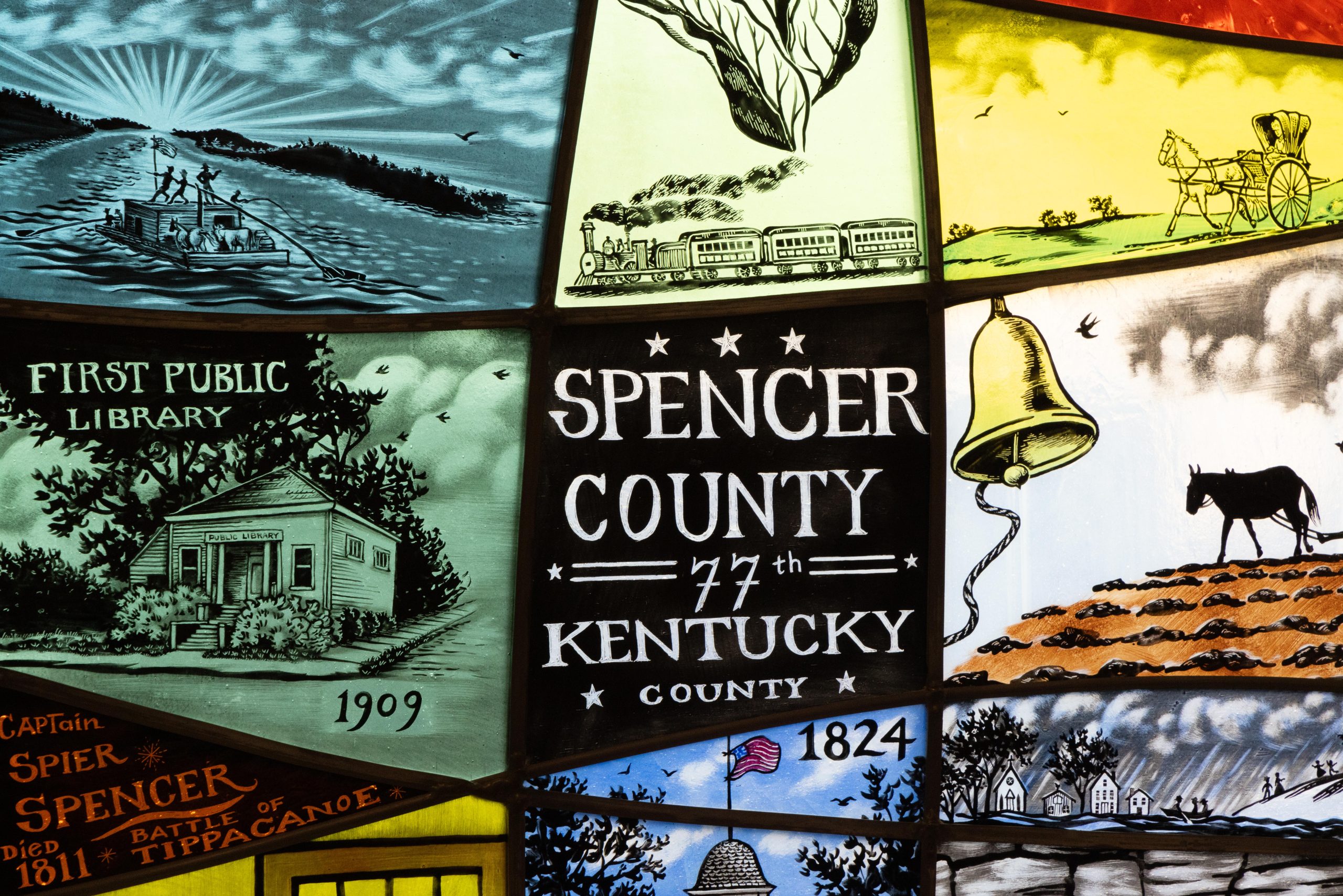Saving local history, one story at a time

Memories are a lot like sand in an hourglass. Once they slip through, they’re lost forever.
Lost, that is, if no one is there to save them.
Collecting and preserving family history is something many people take joy in, spending hours and years recording the history of their family.
But what if there was a way to record that history with a much more personal touch?
That’s the mission of the Spencer County Public Library’s Oral History Project: to collect stories and information from Spencer County residents via video, capturing more than just the words that make up a story.
Since its launch last year, the library has published the stories of nine Spencer County residents, covering a wide variety of historical subjects, like a recent video detailing the history of Ashes Creek.
The project, like many things over the past few years, had its seeds planted in a pre-pandemic world, explains library director Debra Lawson.
“A former board member … was urging us to start an oral history program,” Lawson explained. “[The board member] was from here, she moved back here, her mother is elderly, and she knew a lot of the [county’s] older population had stories to tell.

A sense of urgency
When the pandemic hit, Lawson says the urgency to get the project up and running became greater, as many of the county’s elderly population were at an increased risk of contracting the coronavirus.
The recording setup and required software were purchased with money from a federal grant. Melissa Sanders, one of the library’s adult services associates, came to the library just as the project was set to begin, and she was instrumental in “making the project her own,” as Lawson describes it. With a previous background working with elderly individuals on biographical information, Sanders had pertinent experience coming into the project.
At the start of the project, potential interview subjects were recommended by the library’s board. But as the project has evolved, word of mouth has, ironically, led to more connections.
“People will be talking to me here and bring up someone, and I’ll ask if I can have their number,” Sanders laughs. “I mean, it is an oral history [project]. It kind of makes sense that every connection is word of mouth.”
Family History Month takes place in October, and both Lawson and Sanders agree that recording your own family’s oral history can be a fulfilling and rewarding effort.
“I do think you should 100 percent sit down with your grandparents or older family members and film them,” Sanders says. “When that person is gone, it will be so nice to not only have their words, but to have their face and their mannerisms… There’s always so much for personality with a video.”
“I think it’s very important because that’s what we are. We’re storytellers,” Lawson explains. “We like to talk about our lives. I hope people talk to their own families about that.”
Local details
While the project’s goal of preserving local history has remained the same, the type of history and information collected has changed since its beginning. Interviews were originally focused on general Spencer County history, but topics have become much more specific to various aspects of the county.
“I think the scope has changed, because originally it was more broad, and now we’re getting down into things like, ‘what was your family store like?’” Sanders says. “I think that will be really good for the project.”
“Spencer County has changed a lot, and it’s good to document what it was [like], and how it grew,” Lawson says.”
So, what interesting historical accounts are next on the list? Lawson would like to hear about the impact that GE’s Appliance Park had on Spencer County when it opened in 1951, and the economic change it brought with it.
“I would like to have someone come in and talk about that, someone that lived it,” she says. “Someone that went from [farming] to working at the plant.”
For Sanders, it’s all about preserving the memories of places and things that no longer exist, like the community of Van Buren that lies under Taylorsville Lake.
“[I’d like to talk to] anyone who has experience working somewhere, going to school somewhere, that is completely gone,” she says. “That it’s been torn down, the institution no longer exists in Spencer County, that’s what I want to hear about. Places and things you’ll never be able to see. Things that, when that story is gone, are gone—forever.”
Gone like sand slipping through an hourglass.
If you’re interested in taking part in the library’s Oral History Project, contact Melissa Sanders at the Spencer County Public Library.
